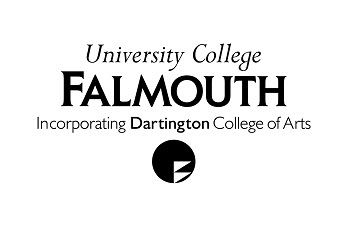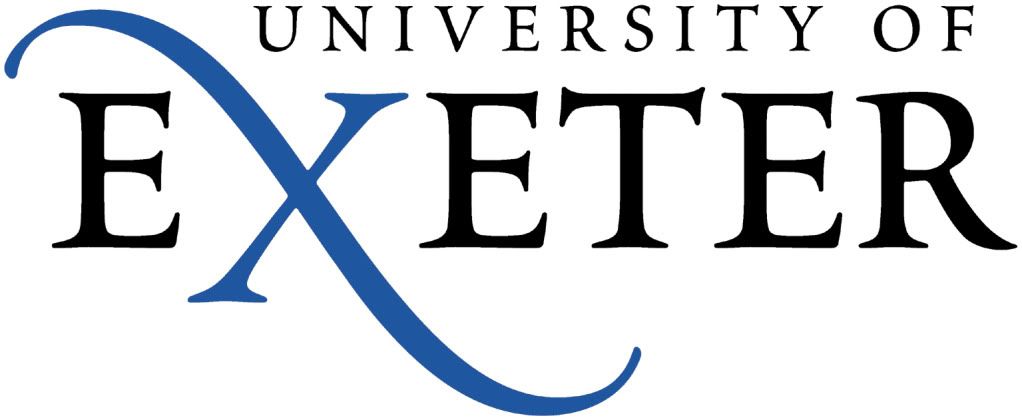Last Thursday an event was held to launch the Bill Douglas and Peter Jewell Collection at Tremough. Bill Douglas, a Scottish film director, and his lifelong friend, Peter Jewell, were both avid collectors of books, memorabilia, and artefacts relating to the history and prehistory of cinema. After Bill died in 1991, Peter donated their collection to the Exeter University Foundation. Our collection is formed of duplicates from the Bill Douglas Centre at the University of Exeter's Streatham campus, and contains books relating to the history of film and visual media and includes annuals dating back to the 1940s, Hollywood picture albums, and a range of novels that have been turned into films.
The event was aimed at and attended by film students, as well as some keen members of the library, and was kicked off with an introduction to the Collection by Peter Jewell himself. He gave a brilliantly rambling history of his and Bill's friendship and the beginning of the collection, frequently going off on a fascinating tangent. He gave a brief outline of the history of pre cinema, which was illustrated with images of panoramas, books, a cinematographe, optical toys and other ephemera, all taken from the Collection at Exeter's Streatham Campus.
This was followed up by Phil Wickham, Curator of the Bill Douglas Centre, who spoke about how to use the Centre, and what the collections can tell you about film. This was really useful for the students, as it brought home what an amazing resource is available to them and of how much value it could be to their work.
After a short break, we heard from Richard Daniels, Senior Archivist at the Stanley Kubrik Archive at the University of the Arts London. Richard explained the history of the Collection, and how it can give researchers a unique insight into the filmmaking processes of Stanley Kubrick. It is also a valuable resource for film students who want to find out more about the process in general, from filmmaking techniques and photography to screenwriting and film marketing.
Julian Rodriguez, Head of the Department of Media at UCF, then spoke about responding to the Stanley Kubrick Archive, and how students have used the Archive as inspiration for their own projects. He showed two short films by Animation and Documentary students at the London College of Communication which were inspired by the Collection. One of these was an animation that had taken inspiration from the jacket worn by the character Danny in The Shining, which is housed in the Archive.
It was a fascinating day, and I learnt a lot about film history and the processes of film making. From an archivist's point of view, I learnt how our holdings could be of use to our film students. In the Patrick Gale archive, for instance, we have the beginning of the film making process documented through treatments, screenplays and correspondence when Gale was approached to have one of his novels turned into a film. In a more abstract sense, students could take inspiration from several of our collections, like the students at LCC did with the Kubrick Archive. It was, overall, a very positive day, and I hope we see some film students using the service in the near future.
 |
| Selection of books from the Collection |
The event was aimed at and attended by film students, as well as some keen members of the library, and was kicked off with an introduction to the Collection by Peter Jewell himself. He gave a brilliantly rambling history of his and Bill's friendship and the beginning of the collection, frequently going off on a fascinating tangent. He gave a brief outline of the history of pre cinema, which was illustrated with images of panoramas, books, a cinematographe, optical toys and other ephemera, all taken from the Collection at Exeter's Streatham Campus.
This was followed up by Phil Wickham, Curator of the Bill Douglas Centre, who spoke about how to use the Centre, and what the collections can tell you about film. This was really useful for the students, as it brought home what an amazing resource is available to them and of how much value it could be to their work.
After a short break, we heard from Richard Daniels, Senior Archivist at the Stanley Kubrik Archive at the University of the Arts London. Richard explained the history of the Collection, and how it can give researchers a unique insight into the filmmaking processes of Stanley Kubrick. It is also a valuable resource for film students who want to find out more about the process in general, from filmmaking techniques and photography to screenwriting and film marketing.
Julian Rodriguez, Head of the Department of Media at UCF, then spoke about responding to the Stanley Kubrick Archive, and how students have used the Archive as inspiration for their own projects. He showed two short films by Animation and Documentary students at the London College of Communication which were inspired by the Collection. One of these was an animation that had taken inspiration from the jacket worn by the character Danny in The Shining, which is housed in the Archive.
It was a fascinating day, and I learnt a lot about film history and the processes of film making. From an archivist's point of view, I learnt how our holdings could be of use to our film students. In the Patrick Gale archive, for instance, we have the beginning of the film making process documented through treatments, screenplays and correspondence when Gale was approached to have one of his novels turned into a film. In a more abstract sense, students could take inspiration from several of our collections, like the students at LCC did with the Kubrick Archive. It was, overall, a very positive day, and I hope we see some film students using the service in the near future.



